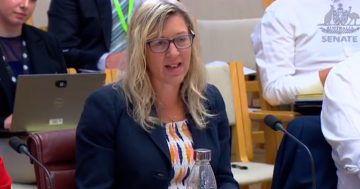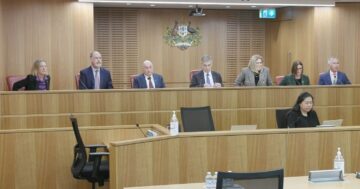
Prime Minister Anthony Albanese thinks more flexible working arrangement could be a win-win situation. Photo: Michelle Kroll.
Anthony Albanese supports the push for more flexible working arrangements but says the Fair Work Commission needs to examine industrial relations laws to find a ‘win-win’ outcome for employers and their staff.
Federal Parliament has only recently passed laws to allow workers to disconnect after hours, but the government has now asked the FWC to review work-from-home rights and responsibilities and whether they should form part of future awards.
Asked about it on Thursday (22 February), the Prime Minister said the commission was independently looking at the issue, but he acknowledged that the Department of Employment was consulting with the FWC.
“We’re consulting; the Fair Work Commission is consulting on this. I think what we need to do is to look for win-win,” Mr Albanese said.
“We need to look where it’s appropriate, where it boosts productivity, where it is helpful to secure people … women’s workforce participation is at a record high and that is one of the factors.
“It isn’t one-size-fits-all, and we shouldn’t have a one-size-fits-all approach. What we need is flexibility, a bit of common sense, and look for measures that help workers, but also help employees.”
Mr Albanese said no further industrial relations legislation was being prepared, even though Employment and Workplace Relations Minister Tony Burke instigated the consultation between his department and the FWC.
“We want to make sure our economy grows and that workers get a share of that growth. That’s been our objective,” he said.
“There is no other legislation being drafted at the moment. We’ll continue to work with business and work with unions and work with workers in order to make a difference to our national economy.
“It’s a matter of what’s appropriate … it’s hard to work from home in construction, for example.
“But for many people, it provides flexibility. It means as well in terms of productivity improvements, that rather than spending up to three hours, many people travel an hour and a half each way to and from work, that activity can be done more productively.
“I think that these issues are worked out between employers and employees. It certainly has been very positive as well for many working mums I know, as well as working dads.
“So during COVID, we saw a big shift in work patterns. I think it is important, at least from time to time, that people gather in one place so they can have that social interaction as well. I believe it is important in workplaces.”
Several unions have pushed for work-from-home rights to form part of enterprise agreements.
That’s where the Coalition has an issue.
Opposition Leader Peter Dutton said the government shouldn’t be “presiding over a wishlist of the union movement”.
“Flexibility is fine for workers, and we encourage that,” Mr Dutton said.
“But, in the end, we have to be careful that the Albanese government just doesn’t side with the union on every occasion.”
Meanwhile, Department of Employment and Workplace Relations Secretary Natalie James said that she tries to adopt a ‘switch off’ policy for herself after hours when she can and encourages her staff to do the same.
She used a LinkedIn post to say that “big, intense jobs” demand a lot of work, but workers need to “set boundaries” that work for them.
She said senior staff who are expected to work after hours are well compensated for it.
The secretary also told a recent Senate Estimates hearing that, for her staff, working from home does not mean they are disconnected from work.
She said her public servants working from home were the “opposite of disconnected” and “about as wired into the matrix” as possible.
More flexible working rights, including work-from-home, have been built into the latest Australian Public Service enterprise agreement currently being voted on across agencies.





















